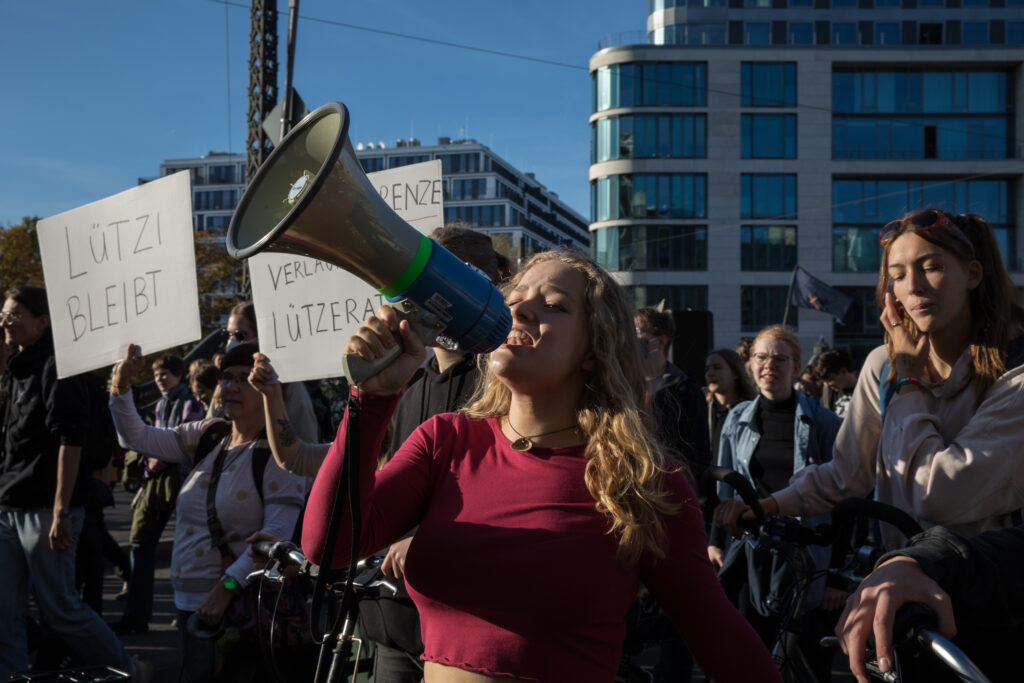Clashes between activists and police occurred as preparations were made to clear the coal village of Lützerath. Activists reportedly threw fireworks, bottles, and stones.
Ahead of the planned eviction of Lützerath, clashes took place between police and climate activists. A police spokesperson stated that the eviction of Lützerath is not currently planned for Monday. However, access roads may need to be cleared for energy company RWE’s machinery to pass through. According to RWE, three rural roads near Lützerath have been permanently closed.
The eviction of Lützerath is expected to take place in January. The Heinsberg county has issued a general ban prohibiting people from staying in the village. If this ban is not obeyed, the county will have the basis “for carrying out eviction measures as of January 10th,” according to the county. Lützerath, located southwest of Dusseldorf, is set to be dug up for coal mining. However, activists currently living in the empty houses of former residents are fighting to save the village, arguing that there is no need to dig up and burn the coal.
The properties and houses in Lützerath belong to energy company RWE. RWE stated that using Lützerath this winter is necessary to ensure a secure energy supply for power plants amid the energy crisis.
View Larger Map
Lützerath is a small village located in the county of Vulkaneifel, in the state of Rhineland-Palatinate, Germany. It is situated in the Eifel region, a hilly area known for its picturesque landscapes and volcanic origins.
The village has a rich history dating back to the Middle Ages. It was first mentioned in a document in 1291, and its name is derived from the Latin word “lucerna,” meaning “lamp” or “light.” This is likely because the village was an important stop on a medieval trade route, and its position atop a hill made it a beacon for travelers.

Climate Activist Calls for Resistance eviction of Lützerath
Climate activist Luisa Neubauer has called for resistance against the eviction of Lützerath in the Rhineland coal region. “Lützerath must be defended with all our might,” Neubauer wrote on Twitter on Tuesday. “Anyone who wants social peace and climate protection must either politically advocate for a moratorium on the eviction of Lützerath or defend the village with us. Every day counts, it is 2023 and we have no more villages to lose. See you in Lützerath.”
On Tuesday, police continued preparations for the planned eviction in the middle of the month. Areas around the village are being developed for the logistics of the large operation, according to a police spokesperson. Lützerath, located near Erkelenz in the Heinsberg county, is set to be dug up for coal mining. Buildings and properties in the village belong to energy company RWE. “The use of the former settlement this winter is necessary to ensure a secure energy supply for power plants amid the energy crisis,” said RWE.
Lignite under Lützerath not needed to secure Germany’s energy supply, study finds
According to a recent study by several German research institutes, the lignite under the village of Lützerath in the Kreis Heinsberg region will not be needed to ensure Germany’s energy supply. The study, commissioned amid the current gas crisis, found that even if an unlikely amount of coal is burned in the latter half of the decade, the already approved amounts in the current RWE open-pit mining complex will be sufficient. The authors concluded that “the use of Lützerath is unnecessary from an energy economic standpoint and cannot be justified from a climate policy perspective.” The CoalExit Research Group, a collaboration of scientists from the Europa-Universität Flensburg, the Technische Universität Berlin, and the Deutsches Institut für Wirtschaftsforschung Berlin, conducted the study.





